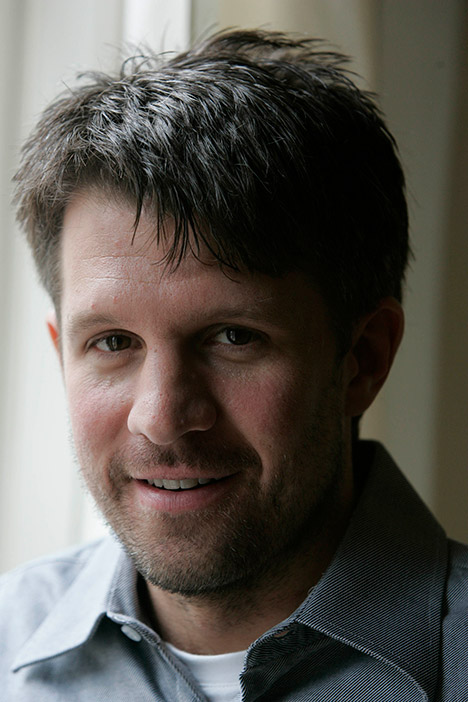
2016 Dorothea Lange Fellow
Shawn Baldwin
Shawn Baldwin shares a natural connection with legendary American photographer Dorothea Lange: Like her, he has a talent for capturing images of people surviving dramatic upheaval in their lives.
Lange is best known for her portraits of American farm families during the Great Depression. Baldwin, a photographer and filmographer who is a second-year graduate student in journalism at UC Berkeley, has documented the lives of South Africans going through the transition from apartheid, of Iraqis and Afghanis during and after conflict, Egyptians though their democratic revolution and resulting crackdown.
"I'm interested in how people survive in these spaces and deal with these spaces - during conflict, and even more so post conflict," says Baldwin, who is this year's winner of the Dorothea Lange Fellowship at UC Berkeley.
Baldwin has put himself in danger to record history. He was taken hostage once in Iraq, with a New York Times reporter - an ordeal that lasted 10 to 12 hours. He's been arrested any number of times, in Libya, in Dubai. "You sort of get arrested once in a while because you're filming in these place," he says.
With his Lange Fellowship, he will takes his cameras to California's drought-beset Central Valley, and seek to cast a national spotlight on migrant workers' lives.
The stresses in the valley are different from those in post-conflict situations, he said, but not entirely. "The migrant workers and the issues they face seemed a little similar to me to some of the other places I've been to, only it's in California. There are parallels there - the water issues, educational issues, poverty issues. People in this area know some of these issues, but I don't think a lot of people outside this area do," Baldwin explained.
This winter's rains haven't changed the picture substantially, in his eyes. "The overall issues that the central valley, and society in general, face int terms of water are not going to go away."
Baldwin plans to photograph in the valley during the late summer harvest, in August and September, when "it will still look like a parched landscape."
His road to international news photography started at Syracuse University, where he studied photo journalism as an undergraduate. After graduation, he applied for 10 internships with American newspapers but didn't land one - so he headed to South Africa, where apartheid was being dismantled, homelands were falling and a post-apartheid state emerging.
As a volunteer for an NGO, he got a good grounding and then started working on his own photo projects, which led him to a job with the Reuters international news agency. Eventually he went to London, and then back out on his own in the volatile Middle East.
Egypt drew him in, and he kept an apartment there for 10 years, traveling and covering the revolution. With his master's thesis, a documentary film he's wrapping up now, he focuses on a young group of journalists to tell the story of how, because of government repression against the democratic surge, the space for political opposition and activism kept shrinking. Journalists - including himself - lived in fear that police would burst into their apartments and arrest them, a fate that befell one of his friends. Baldwin was back in Egypt for two weeks in January.
Baldwin returned to school in Berkeley's graduate journalism program to develop more skills to deal with trends in the news industry.
"I wanted to move more into documentary film making, which I had always wanted to do anyway," he says.
In the changing media world, the Lange Fellowship offers him something that's become rarer, he says: a valuable opportunity to complete a long still photography project.
